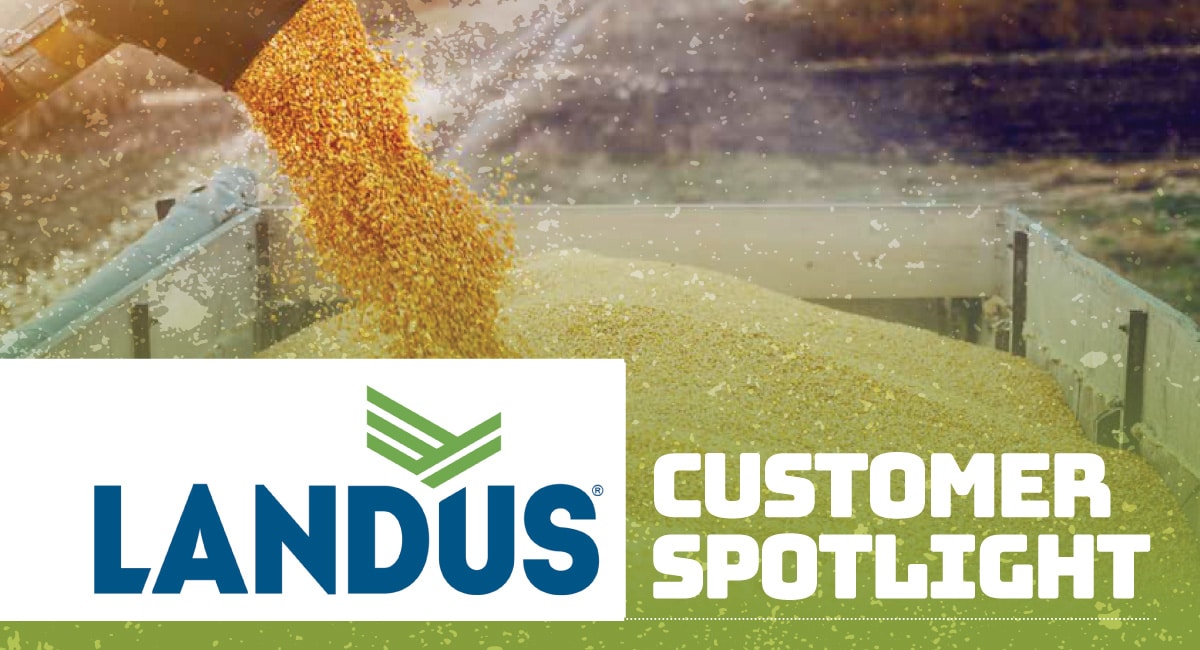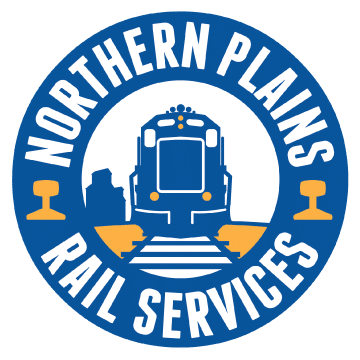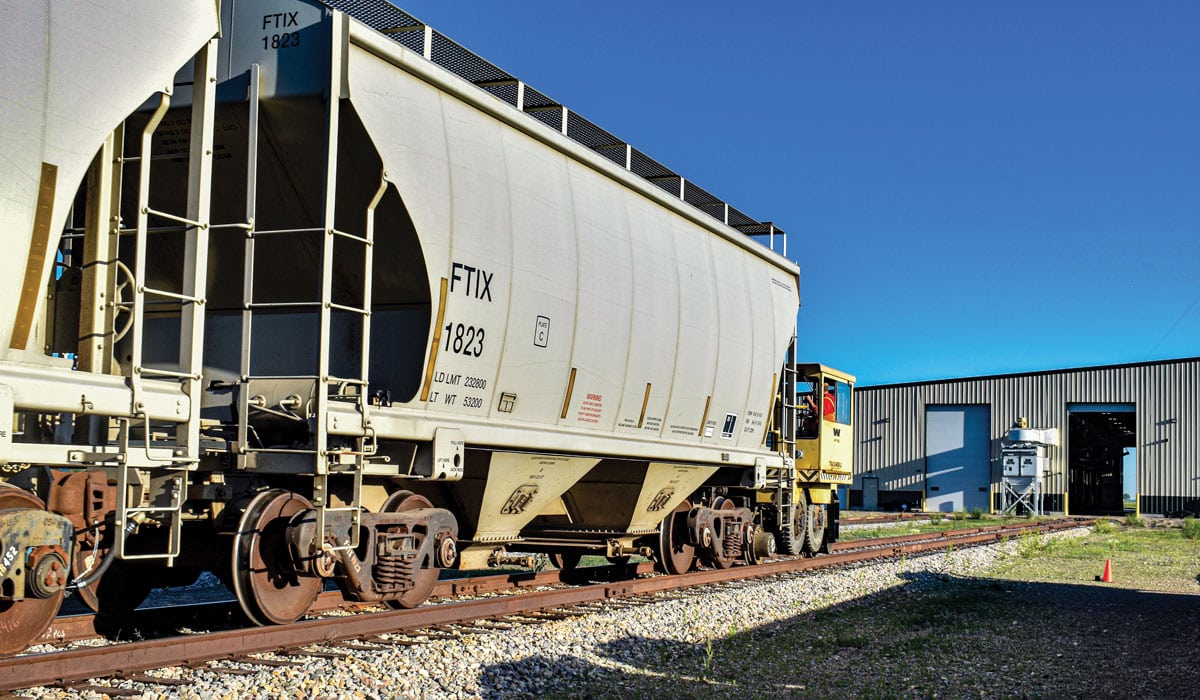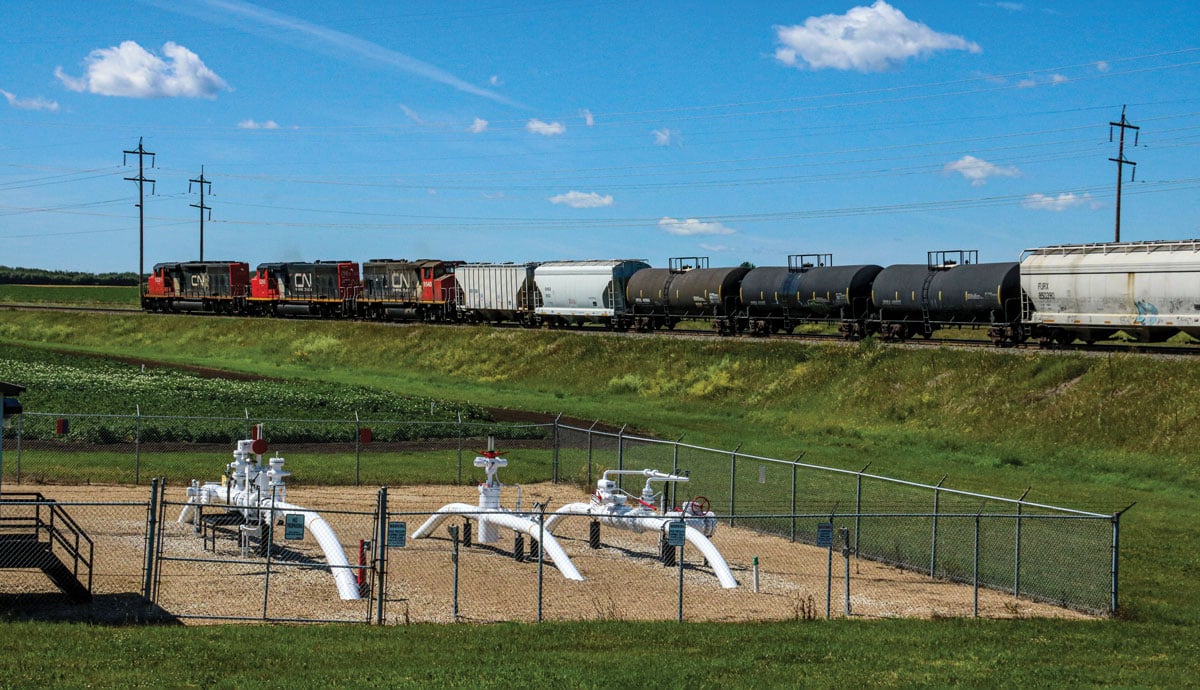
Customer Spotlight: Landus
An Iowa-based cooperative, Landus is a leader in agriculture that spans every step in the supply chain. With 7,000 farmer owners and 600 employees, Landus is the 7th largest grain company by storage in North America. We sat down with the company to learn how its access to seven railroads in Iowa empowers them to link farmers to markets worldwide.
1. Can you provide a brief overview of Landus and the business it is engaged in, and what role does rail transportation play within the overall Landus supply chain?
As a farmer-owned cooperative headquartered in Iowa, Landus elevates and uplifts thousands of farmers in communities throughout rural America. By activating the power of data to connect key contributors across the ag supply chain, we’re helping farmers build sustainable and profitable businesses, and activating a more secure food and fuel future for farmers and consumers alike. Landus is focused on adding value to our farmer-owners’ operations through products and services like grain marketing and merchandising, agronomy analytics, fertilizers, nutrients, animal nutrition and data/sustainability. We develop unique solutions through a network of partnerships and supply chain models.
A large part of our business relies on the viability of railroads. We’re the only Iowa agribusiness with access to seven Class I railroads, and that’s something we are proud to communicate to our active and potential customers. Rail is the only sustainable way to transport grain to many of our end users.
2. What are the key attributes that Landus seeks and values most from its transportation partnership?
Reliability and price-competitive market access are the most important aspects of our partnerships. That’s especially true in the case of our relationships with our railroad partners. This past year, reliability has been poor. This has been well-documented in the press and got so bad that the STB had to get involved to monitor weekly metrics demonstrating improvement. We look for service to become more reliable in the next few months.
To build on that, Landus employs #TheLandusWay, which incorporates pillars of Agility, Courage, Teamwork, and Speed. Agility and speed aren’t words that have often been used to describe the cooperative model, but we’re working to change that, and it’s crucial that our rail partners embrace those values as well. So far, our partners have been excellent in their delivery of agility and speed, and we couldn’t be the cooperative we are becoming without their understanding of our vision.
3. How do the various Landus facilities across the Midwest benefit member cooperatives? What makes Landus a leader within the communities they serve?
We’re always working to become the most efficient cooperative that we can be. We have the largest mechanical soybean crush facility in the U.S., and we are among the top 10 largest grain companies by storage in North America. Our new vision is to see Landus expanding beyond the state lines and into neighboring states via our new venture subsidiary, Landus Conduit LLC, and other partnerships.
Landus employs 650+ people across 60 locations and is one of the largest Iowa-based employers. It’s essential that we commit to supporting rural communities, as that is where our farmer-owners and many of our employees live and work. Whether we are talking to elected officials about public schools, eminent domain, infrastructure, or community impact, we recognize the vital role we play as a collaborator and connector. Many Landus team members are active in their communities’ civic and philanthropic organizations, and we know that working for Landus carries weight in the communities that we serve. As Landus continues to grow, we are creating greater economic impact in small- to medium-size communities across the Midwest.
4. To date, how have the Northern Plains Rail Services categories of Rail Safety Training and Mobile Car Repair helped Landus meet their internal standards for business and transportation success?
Across all of our Landus facilities, safety is our highest priority. To firmly back that priority, we have partnered with Northern Plains Rail Services and developed a Landus-tailored safety program to be implemented across all our rail-lined facilities.
Our program lays the foundation for railway safety practices. With field veterans hosting students for a full day of in-person, hands-on training, industry professionals of all skill levels leave the program with a better sense of safety at their job.
“I’ve worked for 30 years in this business, and I have never had a quality, in-depth training experience like this.” — Mike Jones, Landus Hub Superintendent
While this program is just a few years old, we’re already seeing positive feedback by demonstrating to prospective partners that we value safety. With over 120 participants last year and 140-plus slated for this year’s sessions, Landus employees of all experience levels are getting potentially lifesaving training through our safety program.
We see the rail industry making a strong recovery in the next five years, and we want to be leaders in how to implement rail into locations safely.
5. How does Landus view transportation as an influencer in the future growth of the agricultural processing industry?
Strong connections with our railway systems open markets for transporting bulk grains, as well as processed goods like soy meal and oil, to new markets outside the Midwest. Our farmer-owners can be at the forefront of premium pricing for their grain if we have an efficient logistics system in place. With seamless transportation solutions and product traceability, Landus farmer-owners can continue to supply grain to a diverse set of customers. Feedlots are a fitting example — some require traceable grain for the food industry or food production companies requiring sustainability practices.
The strength and consistency of the U.S. railway system is essential for Landus and agriculture, not only for the growth of the processing industry but also for food availability and security.






